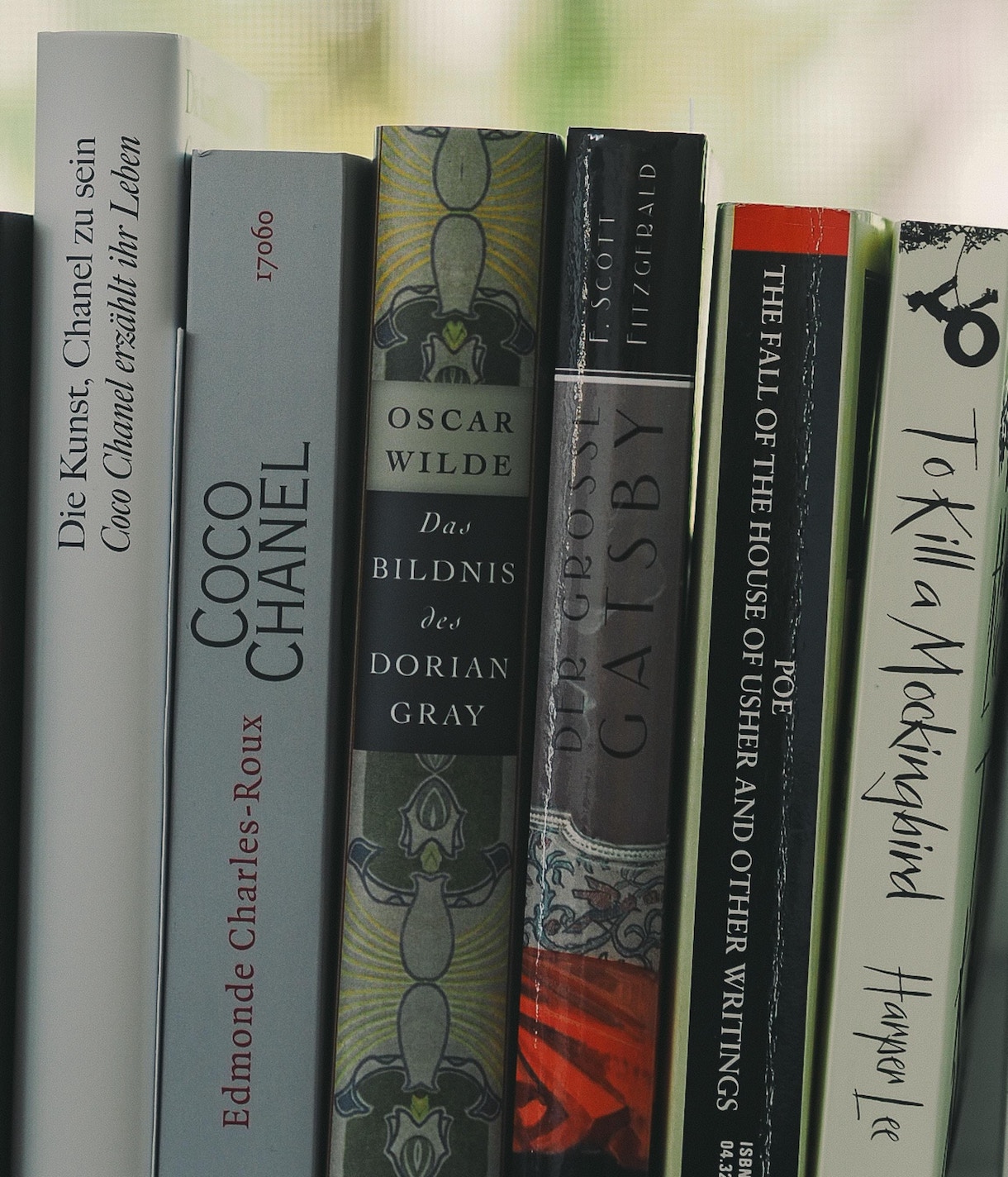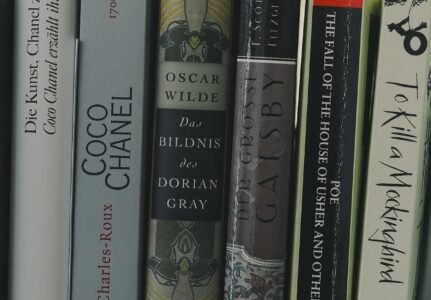Unlock the world of literary novels, from their fascinating history to the diverse subgenres and influential authors.
Introduction
Literary novels, the captivating works of art that transcend time and culture, have been a cherished part of the literary world for centuries. They encompass a wide array of themes, styles, and narratives, delving deep into the complexities of human emotions and experiences. In this article, we embark on an exciting journey to explore the genre of literary novels, tracing its roots, observing its development, and uncovering the key subgenres that have shaped its evolution. From timeless classics to contemporary masterpieces, these books have left an indelible mark on the hearts and minds of readers around the globe.
Defining the Genre
At the heart of literary novels lies a distinctive focus on character development, intricate storytelling, and profound themes that resonate with the human condition. Unlike genre fiction, which often caters to specific plot-driven formulas, literary novels prioritize artistic merit and introspective exploration. They possess a unique ability to transcend traditional boundaries and provoke thought, leaving readers with a lasting impression long after they turn the final page.
History and Development
The roots of literary novels can be traced back to ancient civilizations where oral storytelling and epic poems laid the groundwork for the art of narration. However, it was during the European Renaissance that the modern form of the literary novel began to take shape. The works of iconic writers like Miguel de Cervantes, with his magnum opus Don Quixote, and Daniel Defoe’s Robinson Crusoe, marked significant milestones in the genre’s development.
In the 18th and 19th centuries, literary novels flourished during the Romantic and Victorian eras. The Romantic movement, with its celebration of individualism and imagination, gave rise to the works of authors such as Jane Austen with Pride and Prejudice and the brooding brilliance of the Brontë sisters in Wuthering Heights and Jane Eyre.
The Twentieth Century and Beyond
The 20th century witnessed a revolutionary shift in literary expression, giving rise to groundbreaking movements like Modernism and Postmodernism. Visionary authors like James Joyce, Virginia Woolf, and Franz Kafka pushed the boundaries of narrative experimentation, challenging readers to embrace new perspectives and interpretations.
Post-World War II, the literary world witnessed the emergence of contemporary literary giants who grappled with complex themes of identity, existentialism, and societal disillusionment. Albert Camus’s The Stranger and J.D. Salinger’s The Catcher in the Rye became emblematic of this era, capturing the alienation and restlessness prevalent in post-war society.
In recent decades, the literary novel has continued to evolve, incorporating diverse voices, cultural perspectives, and experimental techniques. From the magical realism of Gabriel García Márquez’s One Hundred Years of Solitude to the poignant narratives of Arundhati Roy’s The God of Small Things, these modern masterpieces have further enriched the genre’s tapestry.
Key Subgenres of Literary Novels
Historical Fiction: Unraveling the Past
Historical fiction, a prominent subgenre within literary novels, weaves captivating stories set in the past, often blending real events with fictional characters and narratives. These novels offer a compelling window into historical periods, shedding light on forgotten or overlooked aspects of our collective past.
Notable examples in this subgenre include Hilary Mantel’s Wolf Hall, which delves into the intrigue of Tudor England during the reign of Henry VIII, and Ken Follett’s The Pillars of the Earth, a riveting tale set in 12th-century England amid the construction of a cathedral.
Bildungsroman: The Journey of Self-Discovery
Bildungsroman, or coming-of-age novels, focus on the psychological and moral growth of a protagonist from childhood to adulthood. These narratives typically delve into themes of identity, societal expectations, and the pursuit of individuality.
A classic example of this subgenre is Charles Dickens’s Great Expectations, following the life of Pip as he navigates the challenges of class struggle and unrequited love. Additionally, J.D. Salinger’s The Catcher in the Rye remains an iconic bildungsroman, capturing the rebellious spirit of adolescence.
Magical Realism: Blurring the Boundaries
Magical realism infuses fantastical elements into an otherwise realistic setting, creating a seamless blend of the ordinary and the extraordinary. This subgenre often explores cultural myths, traditions, and the supernatural, challenging conventional notions of reality.
Gabriel García Márquez’s One Hundred Years of Solitude epitomizes magical realism, narrating the multi-generational saga of the Buendía family and their mythical town of Macondo. Another notable example is Haruki Murakami’s Kafka on the Shore, where reality and dreamscapes intermingle in a thought-provoking narrative.
Psychological Fiction: The Depths of the Mind
Psychological fiction delves into the intricacies of the human mind, probing the depths of emotions, mental states, and interpersonal relationships. These novels often offer profound insights into the complexities of human behavior and the inner struggles we face.
Fyodor Dostoevsky’s Crime and Punishment stands as a seminal work in this subgenre, exploring the psychological turmoil of a young man after committing a heinous crime. More recently, Lionel Shriver’s We Need to Talk About Kevin dissects the troubled psyche of a mother grappling with her son’s horrific actions.
Social Commentary: Reflections of Society
Social commentary novels serve as a lens through which authors critique and analyze societal norms, politics, and cultural issues. They prompt readers to confront uncomfortable truths and engage in discussions about pressing contemporary matters.
George Orwell’s 1984 remains a haunting social commentary on totalitarianism and the erosion of individual freedom. Similarly, Margaret Atwood’s The Handmaid’s Tale offers a dystopian vision of a patriarchal society, serving as a powerful critique of gender oppression.
Influential Books and Authors
Leo Tolstoy and War and Peace
Leo Tolstoy’s War and Peace is a monumental literary achievement and an essential cornerstone of the literary novel genre. This epic work, set against the backdrop of the Napoleonic Wars, weaves together the lives of various characters, providing an intricate portrayal of human nature, war, and society. Tolstoy’s masterful storytelling and profound insights have secured his place as one of the most influential authors in history.
Virginia Woolf and Mrs. Dalloway
Virginia Woolf’s Mrs. Dalloway is a pioneering work of stream-of-consciousness narration and a testament to her literary brilliance. Through the interior monologues of its characters, the novel explores themes of identity, memory, and the passage of time. Woolf’s experimental approach to storytelling has left an indelible mark on the evolution of modern literature.
Gabriel García Márquez and One Hundred Years of Solitude
Gabriel García Márquez’s One Hundred Years of Solitude is an exquisite tapestry of magical realism and familial saga. This novel, often regarded as the quintessential work of the genre, immerses readers in the enchanting world of the Buendía family while offering profound reflections on history, solitude, and the cyclical nature of life.
Toni Morrison and Beloved
Toni Morrison’s Beloved is a haunting and powerful exploration of the legacy of slavery and its impact on African American identity. The novel weaves together historical realities and supernatural elements to create a gripping narrative that delves into the complexities of memory, trauma, and the search for freedom.
Haruki Murakami and Norwegian Wood
Haruki Murakami’s Norwegian Wood is a beautifully melancholic bildungsroman that captures the essence of love, loss, and coming-of-age. With Murakami’s signature blend of realism and surrealism, the novel resonates with readers on a deeply emotional level, making it a modern classic in the literary world.
Conclusion
The genre of literary novels continues to evolve, embracing new voices and perspectives that reflect the changing tapestry of human experiences. From its humble origins in ancient storytelling to the modern masterpieces that grace our bookshelves today, the literary novel remains an unparalleled medium for exploring the depths of human emotions, the complexity of relationships, and the complexities of society. As we journey through its vast landscape, we discover that the power of literary novels lies not only in their ability to entertain but also in their capacity to illuminate the human soul and foster empathy across time and space.
- Jack Kerouac’s On the Road: A Journey of Exploration and Identity
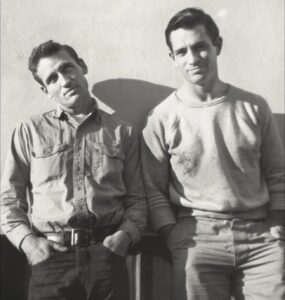 Dive into Jack Kerouac’s On the Road, a captivating journey of freedom and self-discovery. Explore the vibrant adventures of Sal Paradise as he navigates the American landscape, embodying the Beat Generation’s spirit. 🌍✨ #Literature #BeatGeneration #OnTheRoad #JackKerouac
Dive into Jack Kerouac’s On the Road, a captivating journey of freedom and self-discovery. Explore the vibrant adventures of Sal Paradise as he navigates the American landscape, embodying the Beat Generation’s spirit. 🌍✨ #Literature #BeatGeneration #OnTheRoad #JackKerouac - The Evolution of Avant-Garde Literature: A Historical Exploration
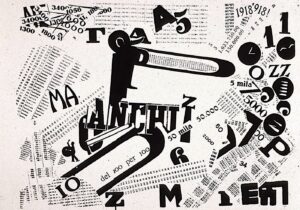 Explore the rich history of avant-garde literature, from Symbolism to digital innovations. Discover how visionary writers challenged norms, embraced experimentation, and pushed boundaries, shaping the literary landscape with their radical and transformative works. Dive into the evolution of this groundbreaking tradition! #AvantGarde #Literature #Innovation
Explore the rich history of avant-garde literature, from Symbolism to digital innovations. Discover how visionary writers challenged norms, embraced experimentation, and pushed boundaries, shaping the literary landscape with their radical and transformative works. Dive into the evolution of this groundbreaking tradition! #AvantGarde #Literature #Innovation - Insights into Conrad’s Heart of Darkness
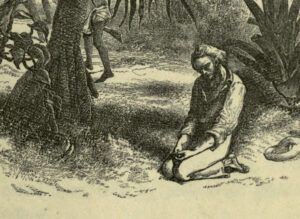 Delve into Joseph Conrad’s “Heart of Darkness,” a gripping exploration of human nature amidst colonial Africa. Follow Charles Marlow’s journey up the Congo River as he confronts the darkness within himself and society. A haunting tale of moral ambiguity and existential angst that continues to captivate readers worldwide.
Delve into Joseph Conrad’s “Heart of Darkness,” a gripping exploration of human nature amidst colonial Africa. Follow Charles Marlow’s journey up the Congo River as he confronts the darkness within himself and society. A haunting tale of moral ambiguity and existential angst that continues to captivate readers worldwide. - The Soft Machine: Unveiling William S. Burroughs’ Literary Realm
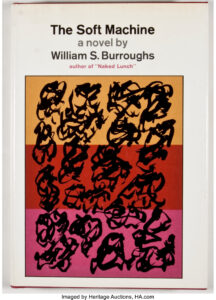 In the realm of avant-garde literature, William S. Burroughs stands as a titan, wielding words like paint on a canvas, crafting narratives that transcend traditional storytelling. His unique style, characterized by fragmentation, nonlinear structure, and exploration of taboo subjects, has left an indelible mark on the literary landscape. One of his most iconic works, “The …
In the realm of avant-garde literature, William S. Burroughs stands as a titan, wielding words like paint on a canvas, crafting narratives that transcend traditional storytelling. His unique style, characterized by fragmentation, nonlinear structure, and exploration of taboo subjects, has left an indelible mark on the literary landscape. One of his most iconic works, “The … - The Unforgettable Tale of Tin Drum
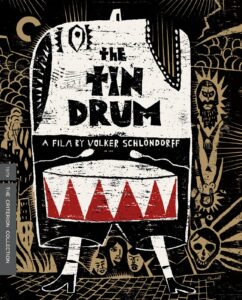 The Tin Drum In the realm of world literature, certain works stand out as timeless masterpieces that continue to captivate readers across generations. Günter Grass’s “The Tin Drum” is undeniably one such work. This chapter takes you on an immersive journey into the heart of this iconic novel, exploring its intricate plot, unforgettable characters, and …
The Tin Drum In the realm of world literature, certain works stand out as timeless masterpieces that continue to captivate readers across generations. Günter Grass’s “The Tin Drum” is undeniably one such work. This chapter takes you on an immersive journey into the heart of this iconic novel, exploring its intricate plot, unforgettable characters, and … - Exploring Kurt Vonnegut’s “Breakfast of Champions”
 Discover the bizarre and thought-provoking world of Kurt Vonnegut’s “Breakfast of Champions.” Unravel the plot, meet the key characters, and delve into the key themes that make this novel a true masterpiece of American literature. Kurt Vonnegut‘s “Breakfast of Champions” is a literary masterpiece that defies easy categorization. Published in 1973, this satirical and absurd …
Discover the bizarre and thought-provoking world of Kurt Vonnegut’s “Breakfast of Champions.” Unravel the plot, meet the key characters, and delve into the key themes that make this novel a true masterpiece of American literature. Kurt Vonnegut‘s “Breakfast of Champions” is a literary masterpiece that defies easy categorization. Published in 1973, this satirical and absurd … - Exploring the Countercultural Odyssey of William Burroughs in 4 Essential Books
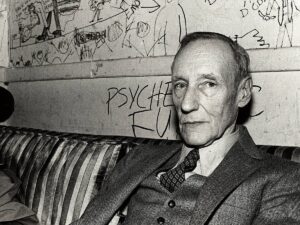 Unlocking the Enigmatic World of the Beat Generation Icon In the hazy realm of Beat Generation literature, one name stands out as a symbol of rebellion, experimentation, and unfiltered artistic expression: William S. Burroughs. An iconoclastic writer, a pioneer of avant-garde literature, and a countercultural luminary, Burroughs’ life and work continue to captivate and challenge …
Unlocking the Enigmatic World of the Beat Generation Icon In the hazy realm of Beat Generation literature, one name stands out as a symbol of rebellion, experimentation, and unfiltered artistic expression: William S. Burroughs. An iconoclastic writer, a pioneer of avant-garde literature, and a countercultural luminary, Burroughs’ life and work continue to captivate and challenge … - Milan Kundera: A Literary Luminary’s Exploration of Human Existence
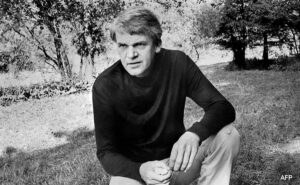 Unlocking the World of Milan Kundera: A Deep Dive into His Literary Legacy If there’s one name that stands out in the realm of contemporary literature, it’s Milan Kundera. With his thought-provoking narratives, philosophical musings, and captivating storytelling, Kundera has left an indelible mark on the literary landscape. In this comprehensive exploration, we delve into …
Unlocking the World of Milan Kundera: A Deep Dive into His Literary Legacy If there’s one name that stands out in the realm of contemporary literature, it’s Milan Kundera. With his thought-provoking narratives, philosophical musings, and captivating storytelling, Kundera has left an indelible mark on the literary landscape. In this comprehensive exploration, we delve into … - Espedair Street: A Journey Through Music, Fame, and Redemption
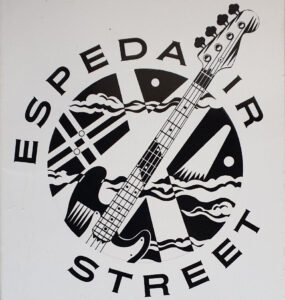 Rediscover the iconic novel by Iain Banks that explores the highs and lows of a rock star’s life. Introduction In the realm of contemporary literature, few authors possess the uncanny ability to dive deep into the human psyche and craft stories that resonate with readers across generations. Iain Banks, the acclaimed Scottish writer, is undeniably …
Rediscover the iconic novel by Iain Banks that explores the highs and lows of a rock star’s life. Introduction In the realm of contemporary literature, few authors possess the uncanny ability to dive deep into the human psyche and craft stories that resonate with readers across generations. Iain Banks, the acclaimed Scottish writer, is undeniably … - Exploring the Literary World of Aldous Huxley: A Dive into Genres, Key Works, Themes, Reviews, and Cultural Influence
 Unveiling the Brilliance of Aldous Huxley’s Literary Universe Aldous Huxley, a name that resonates with literary excellence, remains an icon in the world of literature. Over the course of his prolific career, Huxley explored various genres, penned down thought-provoking themes, and left an indelible mark on the literary landscape. In this extensive journey through the …
Unveiling the Brilliance of Aldous Huxley’s Literary Universe Aldous Huxley, a name that resonates with literary excellence, remains an icon in the world of literature. Over the course of his prolific career, Huxley explored various genres, penned down thought-provoking themes, and left an indelible mark on the literary landscape. In this extensive journey through the … - The Top 20 Literary Novels: A Journey Through Timeless Masterpieces
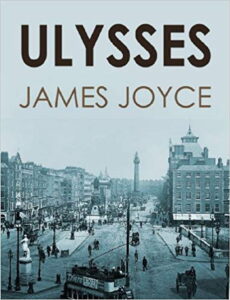 Unlocking the World of Literary Novels: From Classics to Contemporary Treasures Literary novels, often hailed as the crowning jewels of the written word, have held readers in thrall for centuries. These works of fiction transcend mere storytelling; they delve into the human psyche, dissect society, and illuminate the human condition. In this exploration, we embark …
Unlocking the World of Literary Novels: From Classics to Contemporary Treasures Literary novels, often hailed as the crowning jewels of the written word, have held readers in thrall for centuries. These works of fiction transcend mere storytelling; they delve into the human psyche, dissect society, and illuminate the human condition. In this exploration, we embark … - Exploring the Enigmatic Worlds of Iain Banks: 7 Key Books and Their Lasting Cultural Impact
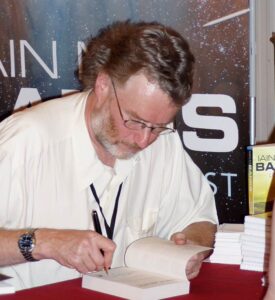 Iain Banks, a master storyteller known for his intriguing blend of science fiction, contemporary fiction, and innovative world-building, has left an indelible mark on the literary landscape. With a diverse range of novels that span across various genres, his writing resonates with readers by delving into complex themes and challenging societal norms. In this in-depth …
Iain Banks, a master storyteller known for his intriguing blend of science fiction, contemporary fiction, and innovative world-building, has left an indelible mark on the literary landscape. With a diverse range of novels that span across various genres, his writing resonates with readers by delving into complex themes and challenging societal norms. In this in-depth … - Ten Essential Magical Realism Novels: Enchantment Between the Pages
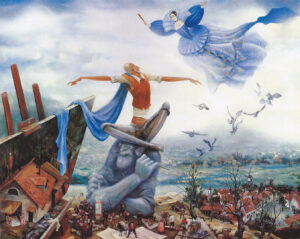 Magical realism novels have the remarkable ability to weave fantastical elements into the fabric of reality, creating narratives that defy convention and invite readers to explore the mysteries of existence. Here are ten essential magical realism novels, each offering a unique blend of enchantment, thought-provoking themes, and literary brilliance. 1. “One Hundred Years of Solitude” …
Magical realism novels have the remarkable ability to weave fantastical elements into the fabric of reality, creating narratives that defy convention and invite readers to explore the mysteries of existence. Here are ten essential magical realism novels, each offering a unique blend of enchantment, thought-provoking themes, and literary brilliance. 1. “One Hundred Years of Solitude” … - Magical Realism: Unveiling the Enchantment Within Reality
 Introduction: Enchantment Within Reality In the realm of literature, there exists a genre that defies traditional boundaries and seamlessly merges the mundane with the extraordinary. This genre, known as magical realism, has enchanted readers for decades with its unique ability to blur the line between reality and fantasy. In this article, we embark on a …
Introduction: Enchantment Within Reality In the realm of literature, there exists a genre that defies traditional boundaries and seamlessly merges the mundane with the extraordinary. This genre, known as magical realism, has enchanted readers for decades with its unique ability to blur the line between reality and fantasy. In this article, we embark on a … - The Crow Road: Unveiling Mysteries in a Scottish Tale
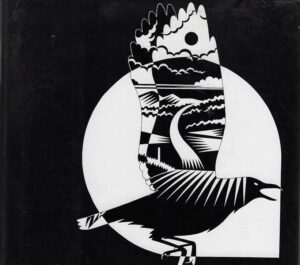 Introduction Nestled within the rich tapestry of Scottish literature, “The Crow Road” emerges as a brilliant gem, skillfully cut to reflect the complexities of mystery, family dynamics, and existential pondering. Penned by the adept hand of Iain Banks, this novel beckons readers into a captivating realm where the threads of plot interweave with the threads …
Introduction Nestled within the rich tapestry of Scottish literature, “The Crow Road” emerges as a brilliant gem, skillfully cut to reflect the complexities of mystery, family dynamics, and existential pondering. Penned by the adept hand of Iain Banks, this novel beckons readers into a captivating realm where the threads of plot interweave with the threads …

